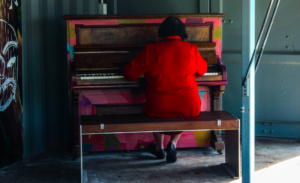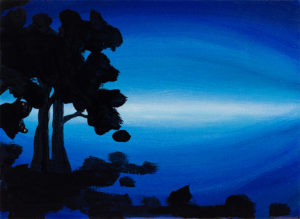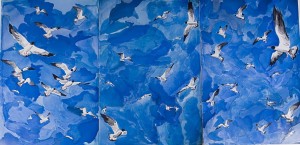Poet’s Introduction: When I read this poem for college audiences, I often ask who played in orchestra or band in earlier years. A ton of hands go up. Then: Who still plays? Most hands drop, accompanied by a guilty look. That’s okay, I explain, I get it. Many of us try musicianship at a young age—I had a viola—only to find that we can’t hold onto our passion. This poem steps into the life of that instrument left behind, growing dusty or out of tune, untended. I imagined what it would be like for a piano to be woken back to life; not just by anyone, but under the hands of a master such as Erik Satie.
The Piano Speaks
After Erik Satie
F
or an hour I forgot my fat self,
my neurotic innards, my addiction to alignment.
For an hour I forgot my fear of rain.
For an hour I was a salamander
shimmying through the kelp in search of shore,
and under his fingers the notes slid loose
from my belly in a long jellyrope of eggs
that took root in the mud. And what
would hatch, I did not know—
a lie. A waltz. An apostle of glass.
For an hour I stood on two legs
and ran. For an hour I panted and galloped.
For an hour I was a maple tree,
and under the summer of his fingers
the notes seeded and winged away
in the clutch of small, elegant helicopters.
Guest Poet Sandra Beasley is the author of three poetry collections: Count the Waves (2015), I Was the Jukebox (2010, winner of the 2009 Barnard Women Poets Prize), and Theories of Falling (2008, winner of the New Issues Poetry Prize). She is also the author of a memoir, Don’t Kill the Birthday Girl: Tales from an Allergic Life (2011). Honors for her work include a Literature Fellowship from the National Endowment for the Arts, the Center for Book Arts Chapbook Prize, and three DC Commission on the Arts and Humanities Artist Fellowships. She lives in Washington, DC, and teaches as part of the University of Tampa’s low-residency MFA program. Visit her at SandraBeasley.com.





0 Comments